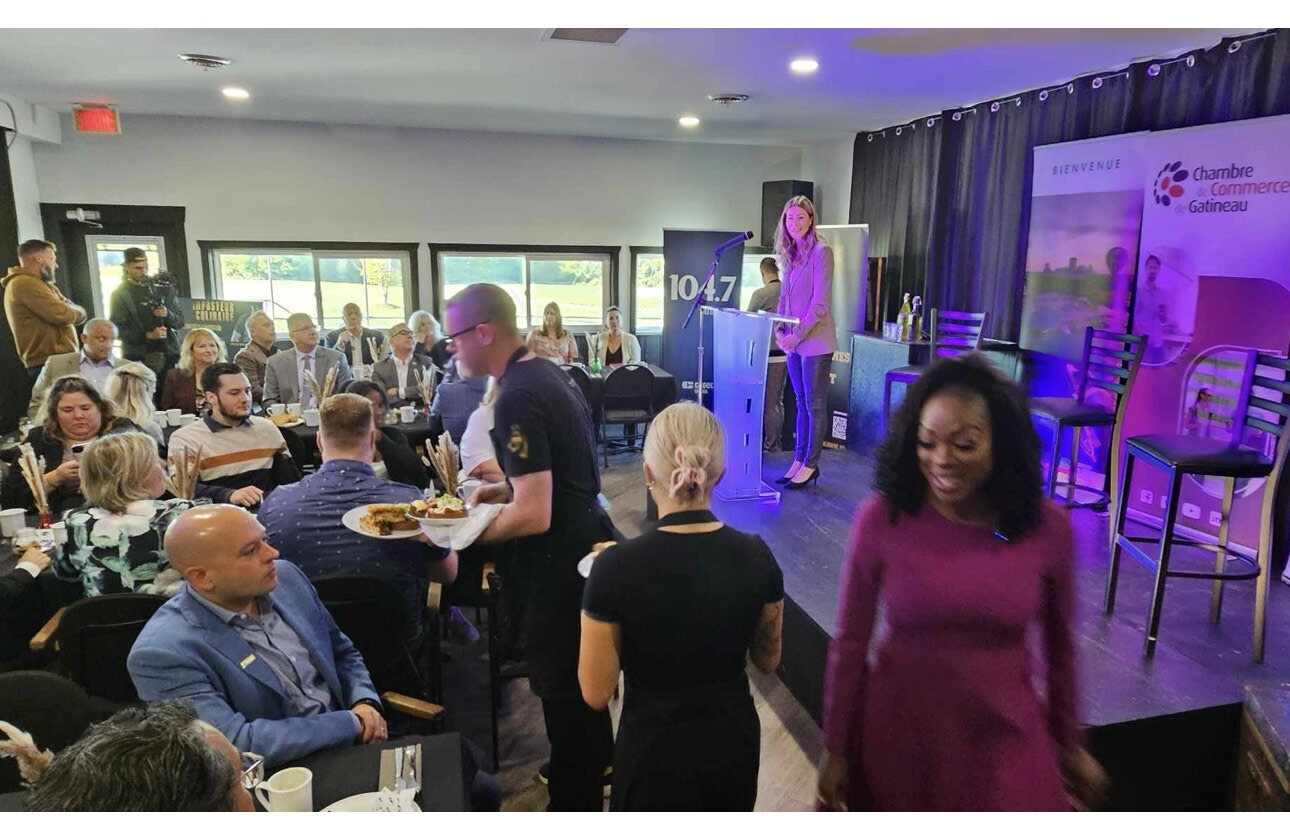Mayor outlines vision for Gatineau economic growth at business breakfast
Tashi Farmilo
At the mayor's breakfast held at the Club de Golf Touraine, Maude Marquis-Bissonnette delivered a comprehensive speech outlining her vision for Gatineau's economic development. Organized by the Chambre de commerce de Gatineau (CCG), the event brought together local entrepreneurs and business leaders for a discussion on the city's opportunities and challenges in fostering sustainable growth.
Marquis-Bissonnette began by acknowledging the city's strengths, particularly its bilingual, well-educated, and diverse population. She also pointed to the federal government’s presence in the region, describing it as both a significant asset and a limiting factor. While government employment brings stability, the mayor noted that the city's reliance on this sector has stifled the growth of other industries. Diversifying Gatineau’s economy, she said, is essential for long-term resilience and innovation.
The mayor emphasized the city’s role in supporting its business community, praising local entrepreneurs for their dedication and engagement. She acknowledged the bureaucratic hurdles that many face when navigating city processes, pledging to reduce red tape and make Gatineau a more business-friendly city. Marquis-Bissonnette stressed that creating a better environment for businesses would involve simplifying administrative procedures and ensuring that the city acts as a true partner for local entrepreneurs.
Addressing housing issues, the mayor highlighted the growing need for affordable, quality housing to attract and retain workers. She tied this challenge to the broader goal of creating vibrant, complete neighbourhoods that appeal to both residents and businesses. Public infrastructure and transportation were key components of her vision, with a particular focus on the tramway project, which she described as central to the city’s future connectivity and appeal.
Marquis-Bissonnette also spoke about the importance of collaboration between the public and private sectors. She pointed to the upcoming $5 billion hospital project as a transformative opportunity for the region, not only in terms of health care but also as a driver of economic activity in related sectors like education and research. She noted the potential for Gatineau to become a hub for innovation, drawing comparisons to cities like Boston, which have grown around major institutions.
Following her speech, a panel discussion was held featuring François Juneau of Multivesco and Tristan Arnaud of Le Minotaure. Both panellists echoed the mayor's focus on revitalizing Gatineau’s downtown core, a longstanding challenge for the city. Arnaud, a fixture in the city’s business scene for 25 years, reflected on the difficulties in building a vibrant downtown, noting that despite years of promises, progress has been slow. Juneau stressed the need for diversification beyond the federal government’s investments, particularly in attracting more varied commercial activity to the city.
The discussion highlighted the challenges of creating a dynamic downtown area, but both panellists agreed that, with the right focus and investment, Gatineau has the potential to become a more attractive and competitive city. Marquis-Bissonnette’s remarks, followed by the candid insights from the panel, underscored the importance of cooperation between the city and its business leaders in charting a course for the future.

